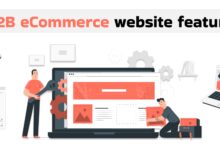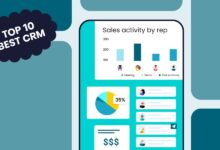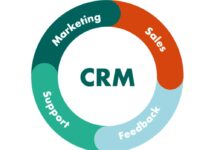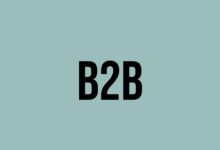Crm system for small business: 5 Best CRM Systems for Small Business: Ultimate Power Guide
Running a small business is no small feat—juggling leads, managing customer relationships, and keeping sales on track can feel overwhelming. That’s where a solid CRM system for small business comes in, acting as your digital command center to streamline operations and boost growth.
Why a CRM System for Small Business is a Game-Changer

Small businesses today face fierce competition and rising customer expectations. A CRM system for small business isn’t just a luxury—it’s a necessity for staying organized, responsive, and scalable. By centralizing customer data, automating follow-ups, and improving team collaboration, CRM tools empower small teams to act like enterprise-level organizations.
Centralized Customer Data Management
One of the most powerful benefits of a CRM system for small business is the ability to store all customer interactions in one secure location. No more scattered spreadsheets or lost emails. With a centralized database, every team member can access up-to-date information on leads, purchase history, support tickets, and communication logs.
- Eliminates data silos across departments
- Tracks customer behavior and preferences over time
- Enables personalized marketing and sales outreach
“A CRM turns random customer interactions into a structured, repeatable process.” — Sales Expert, HubSpot
Improved Sales Efficiency and Forecasting
Sales teams in small businesses often operate with limited resources. A CRM system for small business helps them work smarter by automating routine tasks like data entry, follow-up reminders, and lead scoring. This allows sales reps to focus on closing deals rather than administrative work.
Additionally, built-in analytics provide real-time insights into sales pipelines, helping business owners forecast revenue more accurately. Tools like Zoho CRM and Salesforce offer visual dashboards that make it easy to identify bottlenecks and adjust strategies on the fly. Learn more about Zoho CRM.
Top 5 CRM Systems for Small Business in 2024
Choosing the right CRM system for small business can be overwhelming with so many options available. To help you make an informed decision, we’ve analyzed the top five platforms based on ease of use, pricing, scalability, and feature set. These tools are designed specifically with small businesses in mind.
1. HubSpot CRM
HubSpot CRM stands out as one of the most user-friendly and powerful CRM systems for small business. It offers a completely free version with robust features, including contact management, email tracking, deal pipelines, and live chat integration.
- Free forever plan with no user limits
- Seamless integration with marketing, sales, and service hubs
- Intuitive interface ideal for non-technical users
For growing businesses, HubSpot’s paid tiers offer advanced automation, custom reporting, and AI-powered insights. Explore HubSpot CRM features.
2. Zoho CRM
Zoho CRM is a feature-rich platform that combines affordability with enterprise-level functionality. It’s particularly popular among small businesses that need scalability without breaking the bank.
- AI-powered assistant (Zia) for predictive sales forecasting
- Customizable workflows and automation rules
- Strong mobile app for on-the-go access
Zoho also integrates seamlessly with other Zoho apps like Books, Campaigns, and Desk, making it a complete business ecosystem. Visit Zoho CRM.
3. Salesforce Essentials
Salesforce, a global leader in CRM, offers Salesforce Essentials—a streamlined version tailored for small businesses. While the full Salesforce platform can be complex, Essentials simplifies the experience with pre-built templates and guided setup.
- Cloud-based with real-time collaboration
- Role-based access control for team security
- Integration with email, calendar, and third-party apps
Salesforce Essentials is ideal for small teams that plan to scale quickly and may eventually need more advanced CRM capabilities. Check pricing and features.
4. Insightly
Insightly is a customer relationship management tool that blends CRM with project management—perfect for small businesses managing client projects or service delivery.
- Project tracking with timelines and milestones
- Relationship linking to map customer networks
- Workflow automation for lead nurturing
Its visual interface makes it easy to see how sales opportunities connect to ongoing projects, improving cross-functional coordination. Discover Insightly.
5. Freshsales (by Freshworks)
Freshsales is known for its intuitive design and built-in phone, email, and chat capabilities. It’s a great choice for small sales teams that want everything in one place.
- AI-based lead scoring to prioritize hot prospects
- Click-to-call and email tracking from within the app
- Visual deal pipeline with drag-and-drop functionality
Freshsales also offers a free plan for up to three users, making it accessible for startups and solopreneurs. Try Freshsales free.
Key Features to Look for in a CRM System for Small Business
Not all CRM systems are created equal. When evaluating a CRM system for small business, focus on features that deliver real value without unnecessary complexity. The right tool should grow with your business and integrate smoothly into your daily operations.
Contact and Lead Management
The foundation of any CRM system for small business is effective contact and lead management. This includes the ability to import contacts, segment them by criteria (like industry or location), and track their journey from initial inquiry to closed deal.
- Automated lead capture from web forms and emails
- Duplicate detection and merge tools
- Custom fields to store business-specific data
Sales Pipeline Tracking
A visual sales pipeline helps small businesses understand where each deal stands and identify potential roadblocks. Look for drag-and-drop functionality, stage customization, and pipeline forecasting tools.
- Real-time updates across team members
- Probability-based revenue forecasting
- Integration with calendar and task management
Automation and Workflow Tools
Time is a precious resource for small businesses. Automation features in a CRM system for small business can save hours every week by handling repetitive tasks like sending follow-up emails, assigning leads, or updating records.
- Rule-based triggers (e.g., send email after form submission)
- Multi-step workflows with conditional logic
- Task reminders and escalation rules
“Automation in CRM can increase sales productivity by up to 30%.” — Nucleus Research
How to Choose the Right CRM System for Small Business
Selecting the best CRM system for small business requires careful consideration of your team size, budget, industry, and long-term goals. It’s not just about features—it’s about fit.
Assess Your Business Needs
Start by identifying your pain points. Are you losing leads due to poor follow-up? Struggling to track customer interactions? Need better reporting for decision-making? Map these challenges to CRM capabilities.
- List must-have vs. nice-to-have features
- Involve key team members in the evaluation process
- Consider future needs, not just current ones
Consider Ease of Use and Onboarding
A powerful CRM is useless if your team won’t use it. Look for platforms with intuitive interfaces, mobile access, and strong onboarding support. Many CRM providers offer free trials, training videos, and customer success managers.
- Test the user interface with real data
- Check availability of onboarding resources
- Evaluate mobile app functionality
Integration with Existing Tools
Your CRM shouldn’t exist in isolation. It should connect seamlessly with your email, calendar, accounting software, marketing tools, and website. Most modern CRM systems for small business offer integrations via APIs or native connectors.
- Popular integrations: Gmail, Outlook, QuickBooks, Mailchimp, Slack
- Look for Zapier or Make (formerly Integromat) support for custom workflows
- Ensure data sync is two-way and reliable
Common Mistakes to Avoid When Implementing a CRM System for Small Business
Even the best CRM system for small business can fail if implemented poorly. Many small businesses make avoidable mistakes that lead to low adoption, data inaccuracies, or wasted investment.
Poor Data Migration and Cleanup
Importing messy or outdated data into a new CRM can create more problems than it solves. Before migration, clean your existing databases—remove duplicates, standardize formats, and verify contact information.
- Use CSV templates provided by the CRM vendor
- Validate phone numbers and email addresses
- Map fields correctly during import
Lack of Team Training and Buy-In
If your team doesn’t understand how to use the CRM or doesn’t see its value, they won’t use it consistently. Invest time in training and demonstrate how the CRM makes their jobs easier.
- Conduct hands-on training sessions
- Appoint a CRM champion within the team
- Link CRM usage to performance metrics
Over-Customization Too Early
While customization is powerful, overdoing it too soon can lead to complexity and confusion. Start with default settings and gradually add custom fields, workflows, and reports as your team becomes comfortable.
- Resist the urge to build everything at once
- Use templates and best practices from the vendor
- Review customization needs quarterly
Benefits of Using a CRM System for Small Business
The advantages of adopting a CRM system for small business extend far beyond simple contact management. When used effectively, CRM platforms can transform how you engage with customers and run your operations.
Enhanced Customer Experience
With a 360-degree view of each customer, your team can deliver more personalized and timely service. Whether it’s remembering a client’s birthday or anticipating their next purchase, CRM data enables meaningful interactions.
- Track customer preferences and past purchases
- Send targeted offers based on behavior
- Reduce response times with shared inboxes
Increased Sales Conversion Rates
CRM systems help sales teams stay organized and proactive. Automated reminders ensure no lead falls through the cracks, while analytics highlight which strategies are working.
- Lead scoring identifies high-potential prospects
- Activity tracking shows engagement levels
- Pipeline reports reveal conversion bottlenecks
Better Decision-Making with Data Analytics
Small business owners often make decisions based on gut feeling. A CRM system for small business provides data-driven insights that support smarter choices—from marketing spend to staffing needs.
- Generate reports on sales performance, lead sources, and customer retention
- Visualize trends with charts and dashboards
- Export data for deeper analysis in Excel or BI tools
“Companies using CRM report a 36% increase in customer satisfaction and 34% higher sales productivity.” — SuperOffice
How to Get the Most Out of Your CRM System for Small Business
Implementing a CRM is just the beginning. To truly unlock its value, you need a strategy for ongoing optimization and team engagement.
Set Clear Goals and KPIs
Define what success looks like for your CRM implementation. Is it increasing lead conversion by 20%? Reducing response time to under 2 hours? Setting measurable goals helps track progress and justify the investment.
- Align CRM goals with overall business objectives
- Monitor KPIs like lead response time, deal closure rate, and customer lifetime value
- Review performance monthly
Encourage Consistent Data Entry
Data quality is the lifeblood of any CRM system for small business. Encourage your team to log every interaction—calls, emails, meetings—so the system remains accurate and useful.
- Make CRM usage part of daily routines
- Use mobile apps for real-time updates
- Implement data validation rules
Leverage Automation and AI Features
Modern CRMs come with powerful automation and artificial intelligence tools. Use them to reduce manual work and gain predictive insights.
- Automate follow-up sequences for new leads
- Use AI to suggest next best actions
- Enable voice-to-text notes for faster logging
Future Trends in CRM for Small Businesses
The CRM landscape is evolving rapidly, driven by advancements in AI, mobile technology, and customer expectations. Small businesses that stay ahead of these trends can gain a competitive edge.
AI-Powered Personalization
Future CRM systems for small business will leverage AI to deliver hyper-personalized experiences. From predicting customer churn to recommending products, AI will make small businesses feel like they have a data science team on staff.
- Chatbots for instant customer support
- Predictive lead scoring based on behavior patterns
- Dynamic content suggestions for emails and offers
Mobile-First CRM Experiences
As remote work and field sales grow, mobile CRM access is no longer optional. Expect more CRM platforms to offer offline capabilities, voice commands, and augmented reality features for on-site service.
- Offline data access and sync
- Mobile scanning of business cards
- GPS-based visit tracking
Integration with E-commerce and Social Media
Customers interact with brands across multiple channels. Next-gen CRM systems for small business will seamlessly integrate with Shopify, WooCommerce, Instagram, and Facebook, creating a unified customer profile.
- Track social media interactions within CRM
- Sync online orders and returns
- Automate post-purchase follow-ups
What is a CRM system for small business?
A CRM (Customer Relationship Management) system for small business is a software tool that helps manage customer interactions, track sales leads, automate marketing, and improve customer service. It centralizes all customer data in one place, making it easier for small teams to stay organized and grow efficiently.
Is a CRM worth it for small businesses?
Yes, absolutely. A CRM system for small business can increase sales productivity, improve customer retention, and provide valuable insights. Even with just a few employees, a CRM helps prevent missed opportunities and ensures consistent communication with clients.
Can I use a CRM for free?
Yes, several CRM systems for small business offer free plans, including HubSpot CRM and Freshsales. These free versions often include core features like contact management, deal tracking, and email integration, making them ideal for startups and solopreneurs.
How long does it take to implement a CRM?
Implementation time varies, but most small businesses can get a basic CRM setup running in 1–2 weeks. This includes data migration, team training, and initial configuration. Full optimization may take a few months as teams adapt and refine workflows.
Do I need technical skills to use a CRM?
No, most modern CRM systems for small business are designed to be user-friendly and require no coding or technical background. Vendors provide setup wizards, tutorials, and customer support to help you get started quickly.
Choosing the right CRM system for small business is one of the smartest investments you can make. From improving customer relationships to boosting sales efficiency, the right platform can transform how you operate. Whether you go with HubSpot, Zoho, Salesforce, Insightly, or Freshsales, the key is to start, stay consistent, and continuously optimize. With the right strategy, a CRM isn’t just a tool—it’s a growth engine for your small business.
crm system for small business – Crm system for small business menjadi aspek penting yang dibahas di sini.
Further Reading:





